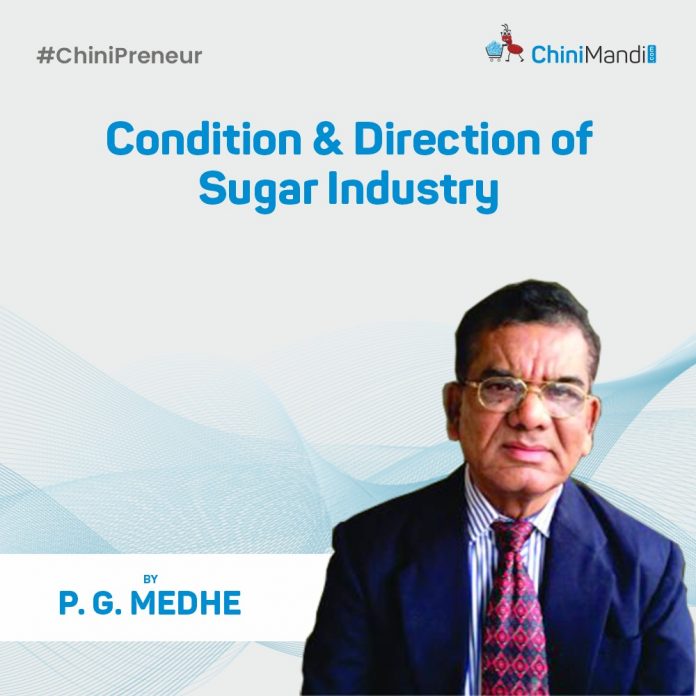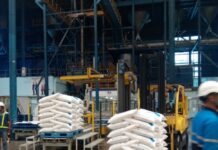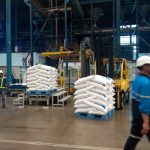The establishment of the sugar industry in rural areas can significantly impact socio-economic development. Sugar industry creates jobs directly in sugarcane cultivation, processing, and distribution, providing employment to a large number of people in rural areas. Sugarcane farming becomes a source of income for rural farmers, leading to economic stability and growth in these communities. The establishment of sugar mills often necessitates the development of infrastructure such as roads, transportation networks, and irrigation systems, which benefits the entire rural region.
Farmers gain access to markets for their produce, both locally and internationally, enhancing their economic opportunities and reducing dependency on subsistence farming. Sugar processing adds value to raw sugarcane, leading to increased profitability for farmers and other stakeholders involved in the industry. Improved economic conditions often lead to better access to education, healthcare, and other social services in rural areas, contributing to overall social development. Sugar industry investments may bring modern agricultural practices and technology to rural areas, leading to increased productivity and efficiency in farming practices. Overall, the establishment of the sugar industry in rural sectors can catalyze socio-economic development by creating employment, generating income, improving infrastructure, and fostering social progress.
A) IMPORTANCE OF SUGAR INDUSTRY IN ENHANCING THE ECONOMIC CONDITIONS OF THE FARMERS…
The sugar industry plays a vital role in enhancing the economic conditions of farmers in several ways:
1) Stable Income Source: Sugarcane cultivation provides farmers with a steady source of income, as it is a perennial crop that can be harvested multiple times a year.
2) Employment Opportunities: The sugar industry creates employment opportunities for rural communities, both in farming and in processing plants, thereby reducing unemployment and poverty levels.
3) Market Demand: Sugar is a staple commodity with consistent demand, ensuring a market for sugarcane farmers’ produce and reducing the risk of crop spoilage or price fluctuations.
4) Value Addition: Besides raw sugar, the industry produces by-products like molasses, ethanol, and bagasse, which can further contribute to farmers’ income streams.
5) Government Support: Many governments provide subsidies and incentives to sugarcane farmers, such as price support mechanisms and access to credit, which helps in stabilizing their income and improving their financial well-being.
Overall, the sugar industry plays a crucial role in rural economies by providing income stability, employment, and market opportunities for farmers, thereby enhancing their economic conditions.
B) ROLE OF SUGAR INDUSTRY IN PROCESSING THE UTENSILS :The sugar industry can play a role in processing eco-friendly products by utilizing sustainable practices in cultivation, minimizing waste, and exploring renewable energy sources for processing. Additionally, they can innovate to produce biodegradable packaging materials or explore alternative uses for byproducts to reduce environmental impact.
C) SUGAR INDUSTRIES INVENTIONS IN PRODUCING THE UTENSILS :
Sugar cane bagasse, the fibrous residue left after extracting juice from sugar cane, has been used in various innovative ways, including the production of utensils like bowls, spoons, plates, and glasses. One notable invention is biodegradable tableware made from bagasse, which offers an eco-friendly alternative to traditional plastic or paper products. These utensils are not only environmentally sustainable but also durable and suitable for serving hot and cold foods. Additionally, the process of converting bagasse into utensils reduces waste and promotes the efficient use of resources in the sugar industry.
D) POTASH RECOVERY FROM BAGASSE:India is dependent on imported Potash which will be reduced as the sugar industry is going to produce Potash from Bagasse. Recovering potash from sugarcane bagasse could significantly reduce India’s dependency on imported potash. By utilizing bagasse, a byproduct of the sugar industry, India can produce its own potash domestically, enhancing self-sufficiency and potentially reducing costs associated with imports. This process aligns with sustainable practices by repurposing agricultural waste and creating a circular economy within the sugar industry. Furthermore, it could potentially boost the income of sugarcane farmers by providing an additional revenue stream from the sale of potash-rich bagasse.
E) ROLE OF SUGAR INDUSTRY IN ETHANOL BLENDING PROGRAM:The sugar industry plays a significant role in the Ethanol Blending Program (EBP) by providing the raw material, sugarcane, for ethanol production. Ethanol, derived from sugarcane, is blended with gasoline to produce ethanol-blended fuels, which helps reduce the country’s dependence on fossil fuels, lowers emissions, and promotes energy security. In terms of the economy, the EBP can have several positive effects on saving foreign exchange:
1)Import Reduction: By substituting ethanol for imported fossil fuels like gasoline, countries can reduce their reliance on foreign oil imports, thereby saving foreign exchange.
2) Revenue Generation: The production and sale of ethanol and ethanol-blended fuels can generate revenue for the domestic economy, further contributing to savings in foreign exchange.
3) Agricultural Sector Support: The EBP creates demand for sugarcane, benefiting farmers and supporting rural economies. This, in turn, can reduce the need for importing agricultural products, contributing to foreign exchange savings.
Overall, the sugar industry’s involvement in the EBP can bolster the country’s economy by reducing import dependency, generating revenue, and supporting the agricultural sector.
F) CONTRIBUTION OF SUGAR INDUSTRY IN PRODUCTION OF CNG PRESS MUD: The sugar industry’s contribution to producing CNG from residue like Press Mud can have significant economic benefits. By utilizing waste to generate energy, it reduces disposal costs and creates an additional revenue stream for sugar mills. This contributes to sustainability and can lower the carbon footprint. Moreover, CNG production helps in reducing reliance on fossil fuels, thereby enhancing energy security. Overall, it fosters a more efficient use of resources and supports economic growth by diversifying revenue streams for the sugar industry and reducing energy costs for consumers.
G) IN NEAR FUTURE SUGAR WILL BE BY-PRODUCT:In this scenario, the sugar industry would transition to a model where sugar becomes a by-product, with other products becoming the main focus. This shift can lead to higher returns for farmers producing sugarcane in several ways:
1) Diversification of Products : By focusing on other products such as ethanol, biofuels, or even CNG from residues like Press Mud, the industry can diversify its revenue streams. This diversification reduces reliance on the volatile sugar market and provides more stable income opportunities for farmers.
2) Value-Added Products: Products like ethanol and biofuels often have higher value compared to sugar. By producing these higher-value products, the industry can generate more revenue per unit of sugarcane, thus increasing returns for farmers.
3) Efficiency Improvements: The process of extracting sugar from sugarcane generates various by-products, including bagasse and molasses. Utilizing these by-products efficiently to produce other valuable goods can increase overall profitability for the industry, enabling better returns for farmers.
4) Market Demand: As the demand for alternative fuels and sustainable products continues to grow, there may be a higher demand and better pricing for products like ethanol and biofuels, providing a lucrative market for farmers.
Overall, by shifting focus to other products and optimizing production processes, the sugar industry can enhance returns for farmers while also contributing to economic and environmental sustainability.
H) PRODUCTION OF ELECTRICITY USING BIOMASS:The sugar industry plays a significant role in producing electricity using biomass, typically from sugarcane residues like bagasse. This process is environmentally friendly because it utilizes renewable resources and reduces reliance on fossil fuels, thereby lowering greenhouse gas emissions. Additionally, such initiatives often earn carbon credits, contributing to global efforts in combating climate change.
I)EMPLOYMENTGENERATION AND THE SUGAR INDUSTRY : The sugar industry plays a significant role in employment generation, both directly and indirectly. With over 500,000 people currently employed in sugar factories, it serves as a major source of livelihood. Additionally, various ancillary activities such as sugar cane cutting, transportation, cane plantation, machinery manufacturing, trading, and more contribute to remote employment opportunities, further boosting the industry’s impact on employment.
Hence, the country with the highest population in the world, is always badly in need of flourishing the employment opportunities for the citizens in general. In that way, the sugar industry, which is second highest next to textile, is playing a pivotal role in providing various types of employment to the public in general, especially people from the rural sector of the country.
EXPECTATIONS FROM GOVT. FOR SOME REVOLUTIONARY POLICY FORECASTING:
For overall development of the sugar industry certain revolutionary policies required to be formulated by the Government. Out of various revolutionary policies, the policy decisions for the following issues required to be taken by the government in near future for the overall development of the sugar industry:
1) Production of Brown Sugar: Introducing brown sugar production alongside traditional white sugar can cater to the growing demand for healthier and less processed sugar alternatives. Brown sugar retains more of the natural molasses content, offering potential health benefits and catering to consumer preferences for natural products.
2) Sulphur-less Sugar: Producing Sulphur-less sugar can address concerns about the environmental and health impacts associated with Sulphur dioxide used in conventional sugar refining processes. Sulphur-less sugar provides a cleaner, healthier option for consumers, aligning with global trends toward sustainable and eco-friendly products.
3) Consolidated Farming for Improved Productivity: Encouraging consolidated farming practices can help improve land productivity by optimizing land use, implementing modern farming techniques, and utilizing advanced machinery and technology. Consolidated farming also allows for better resource management, reduced costs, and improved economies of scale, benefiting both farmers and the industry.
4) Dual Sugar Price Policy: Implementing a dual sugar price policy involves setting different prices for sugar sold in the domestic market and sugar exported internationally. This policy aims to ensure fair returns for both domestic and export-oriented sugar production, incentivizing increased production and exports while maintaining stable prices in the domestic market.
5) Priority Sector Status for the Sugar Industry: Granting priority sector status to the sugar industry provides access to various government incentives, subsidies, and financial assistance schemes available to priority sector industries. This status can facilitate easier access to credit, tax benefits, and other support mechanisms, enabling the industry to invest in modernization, research and development, and sustainability initiatives.
By implementing these revolutionary policies, the sugar industry can diversify its product offerings, improve environmental sustainability, enhance land productivity, ensure fair pricing and returns for farmers, and access necessary support for long-term growth and development. These measures can contribute to the overall sustainability and competitiveness of the sugar industry, fostering economic growth and prosperity in the sector.
WORDS OF GRATITUDE TO THE GOVERNMENT OF INDIA FOR SUPPORTIVE POLICIES TO SUGAR INDUSTRY...
We extend our heartfelt gratitude to the Government of India for its unwavering support and proactive measures that have bolstered the sugar industry’s growth and resilience. From the crucial initiatives such as waiving income tax to offering soft loans for ethanol manufacturing plants, subsidies for sugar cane harvesters, and the establishment of a dedicated cooperation ministry, the government’s vision and commitment have been instrumental. The announcement of the Ethanol Blending Program, along with the fixation of MSP for sugar, exemplifies the government’s dedication to fostering innovation, sustainability, and prosperity across the sector. We commend the government’s proactive stance and collaborative approach, which have paved the way for a thriving and vibrant sugar industry, contributing significantly to the nation’s economic prosperity and social development.
CONCLUSION : In conclusion, the sugar industry plays a multifaceted role in fostering economic growth within the country. Through its diverse outputs including sugar, ethanol, CNG, hydrogen, utensils, electricity, and animal feed, along with its contributions to infrastructure development, education, and employment, the industry serves as a cornerstone of economic progress. From powering transportation to generating clean energy, and from supporting agriculture to creating livelihood opportunities, the sugar industry stands as a testament to innovation and resilience in driving sustainable development and prosperity for generations to come.














